
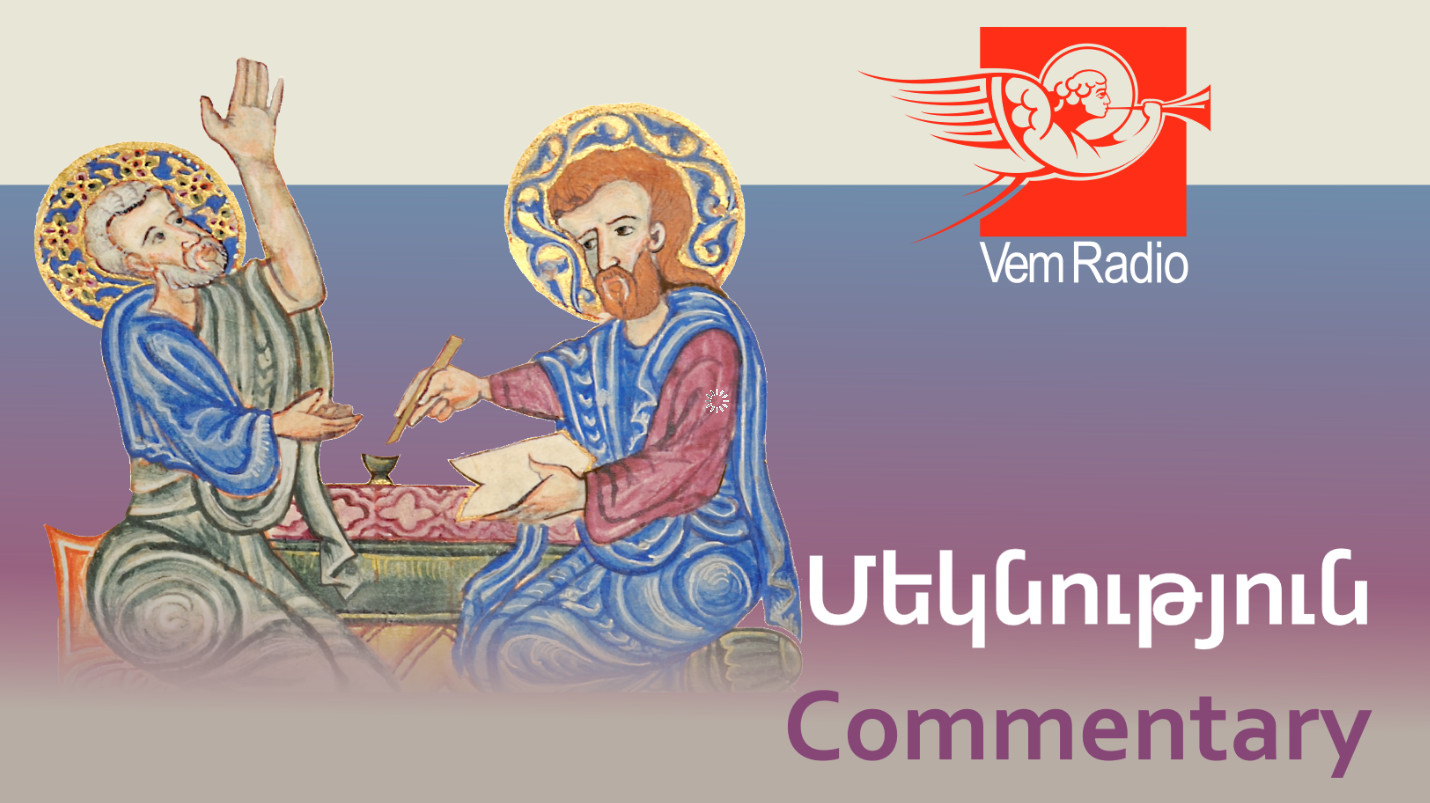
Commentaries on Bible
The Holy Bible in the Sacred Tradition of the Church. How to read, understand and carry out the Word of God. Commentaries of the Church fathers as the basis of the orthodox understanding of the Holy Scripture. How to treat the Holy Scripture and avoid superstitions and deviations. The Word of God as spiritual food, health, and guidance.

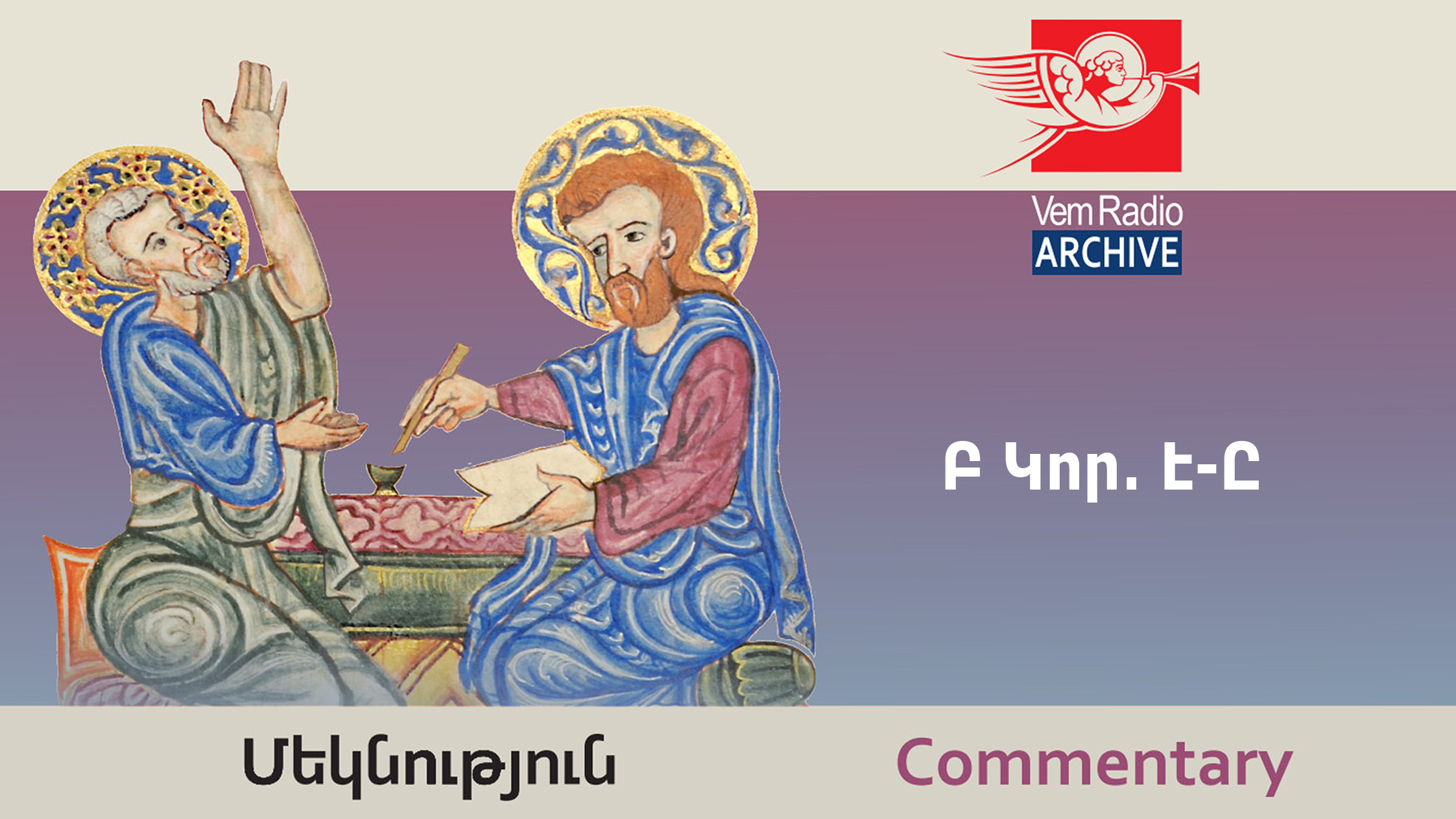
2 Cor. 7-8
The fear of not losing God is the foundation of perfect divine love. How to recognize true Christian humility? Spiritual and worldly sorrows. Generosity is one of Christian spiritual gifts.
- Speaker: Fr. Mesrop Aramian
- Host: Araks Poghosyan

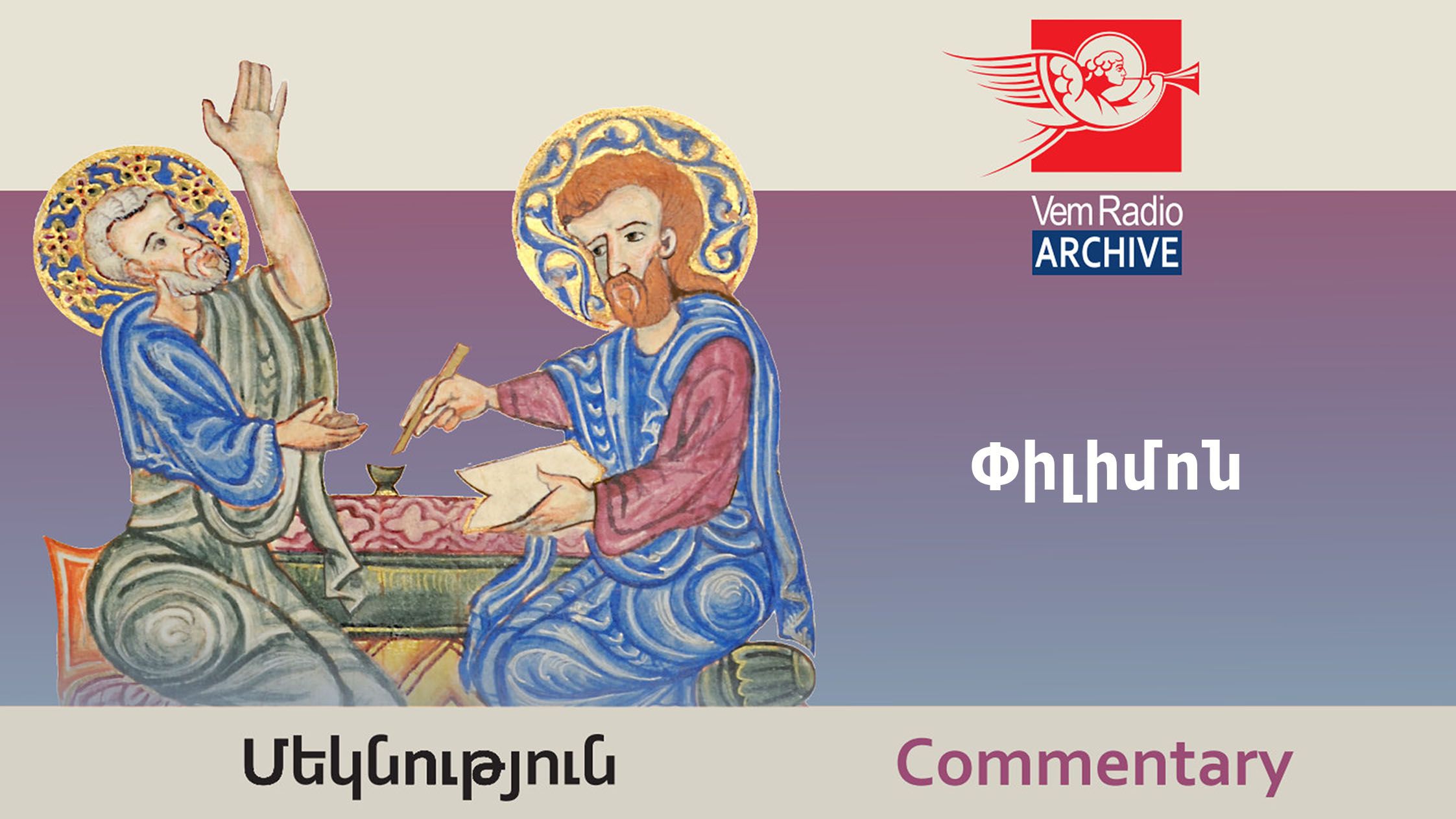
Phil.
The greatest proof of faith is in works of faith. The importance as well as the great difficulties of the love for service. Questions to the priest.
- Speaker: Fr. Mesrop Aramian

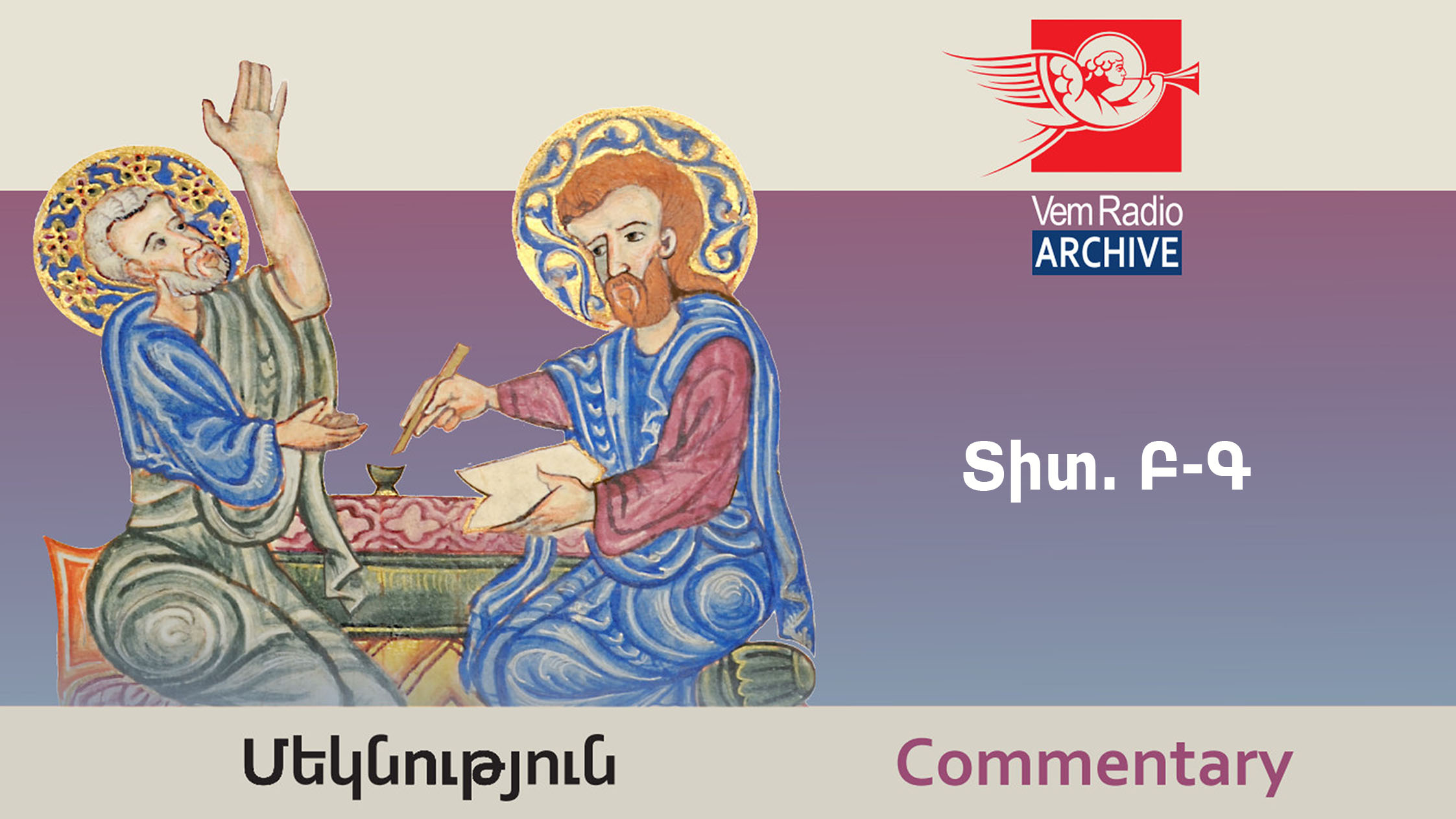
Titus 2-3
The apostle's exhortations to all age groups of people. How to serve chastity its very purpose, godliness. People can reach different levels of holiness in their lives. Marriage and the Christian Church.
- Speaker: Fr. Mesrop Aramian

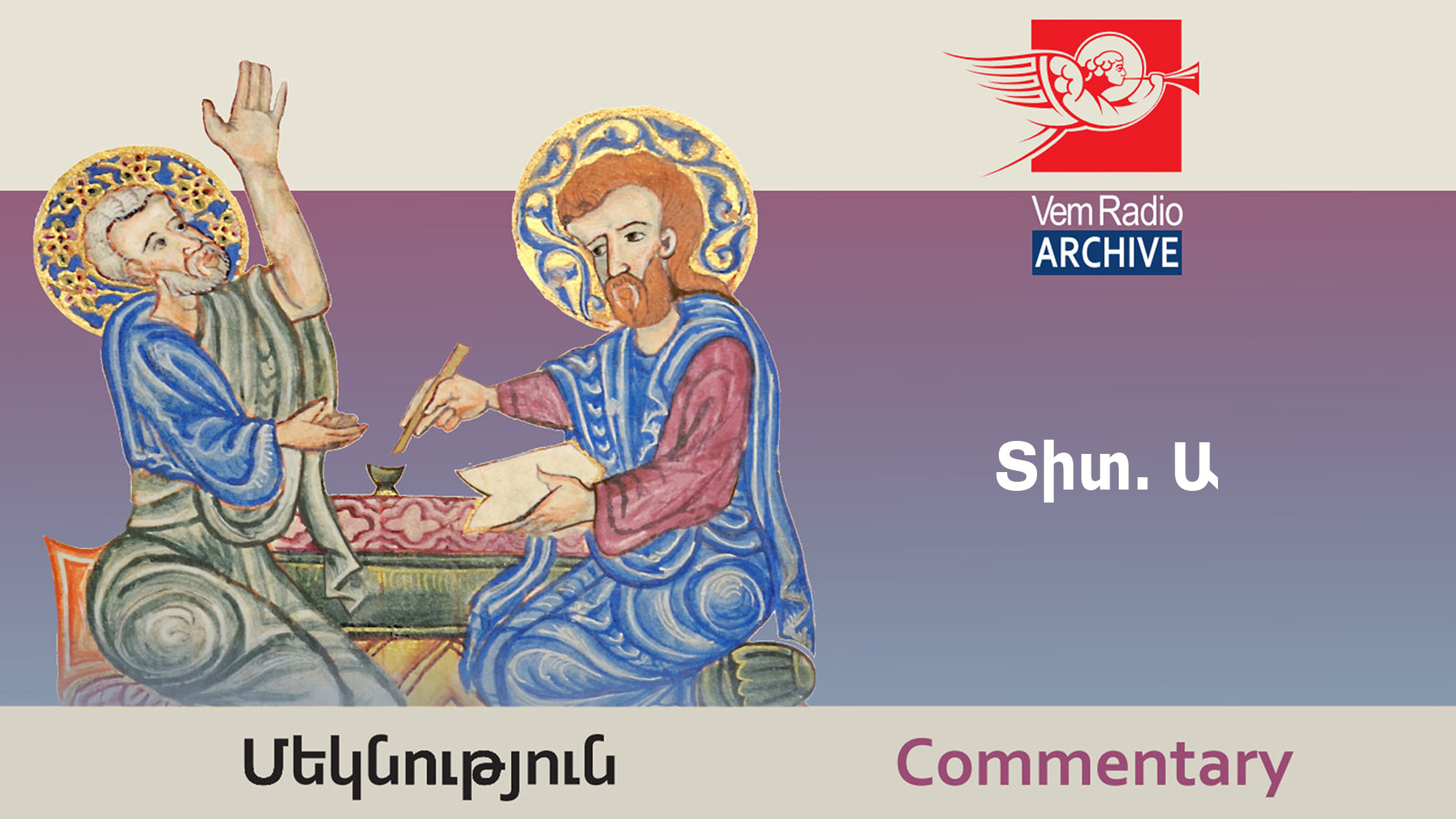
Titus 1
The main goal of apostolic activity is to spread the truth of Christ. Living godliness is coupled with the hope of eternal life.
- Speaker: Fr. Mesrop Aramian

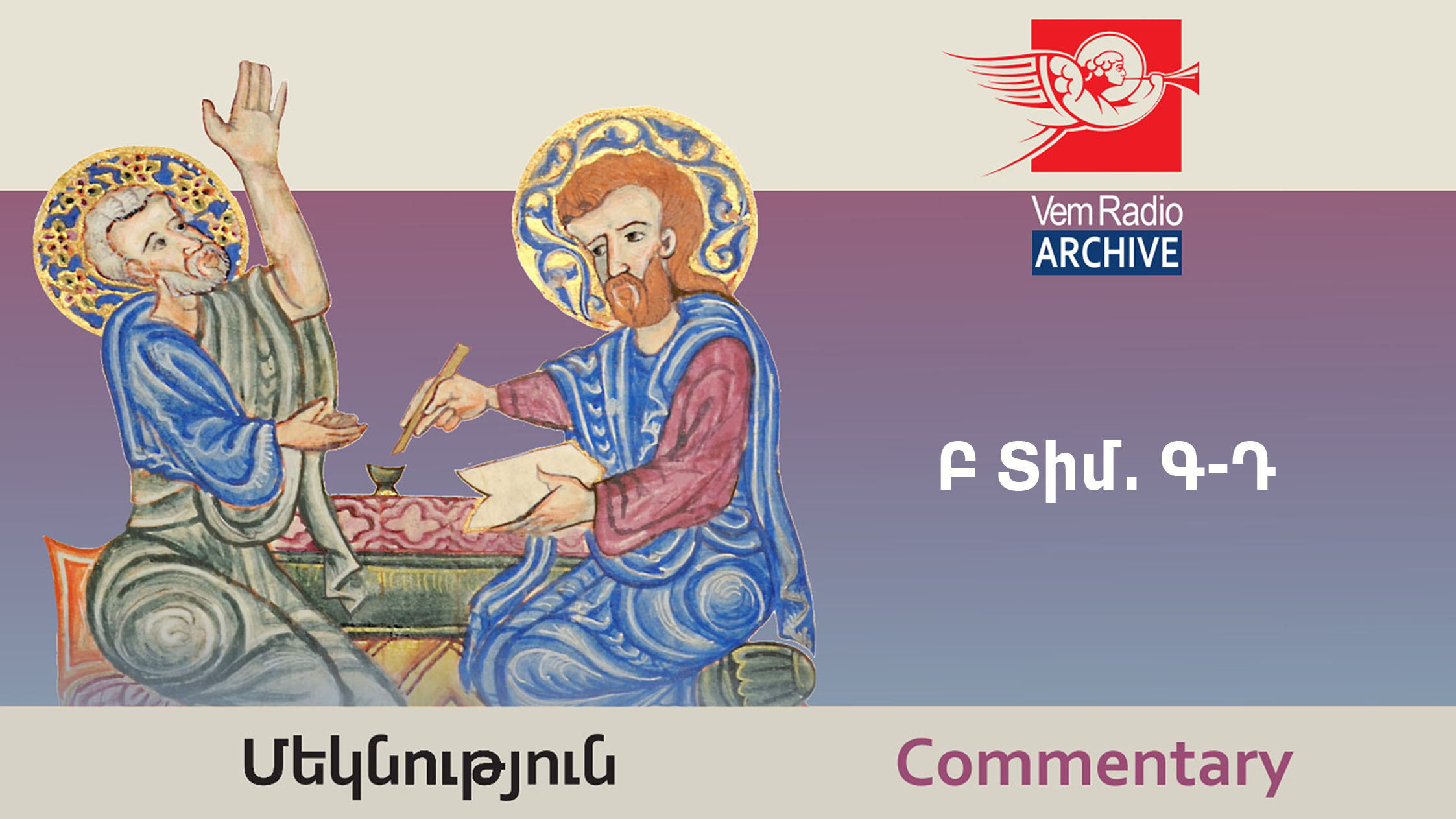
2 Tim. 3-4
The sin of selfishness is the rejection of faith in God. The path to Christ is full of delusions. Apostle Paul about his impending martyrdom.
- Speaker: Fr. Mesrop Aramian

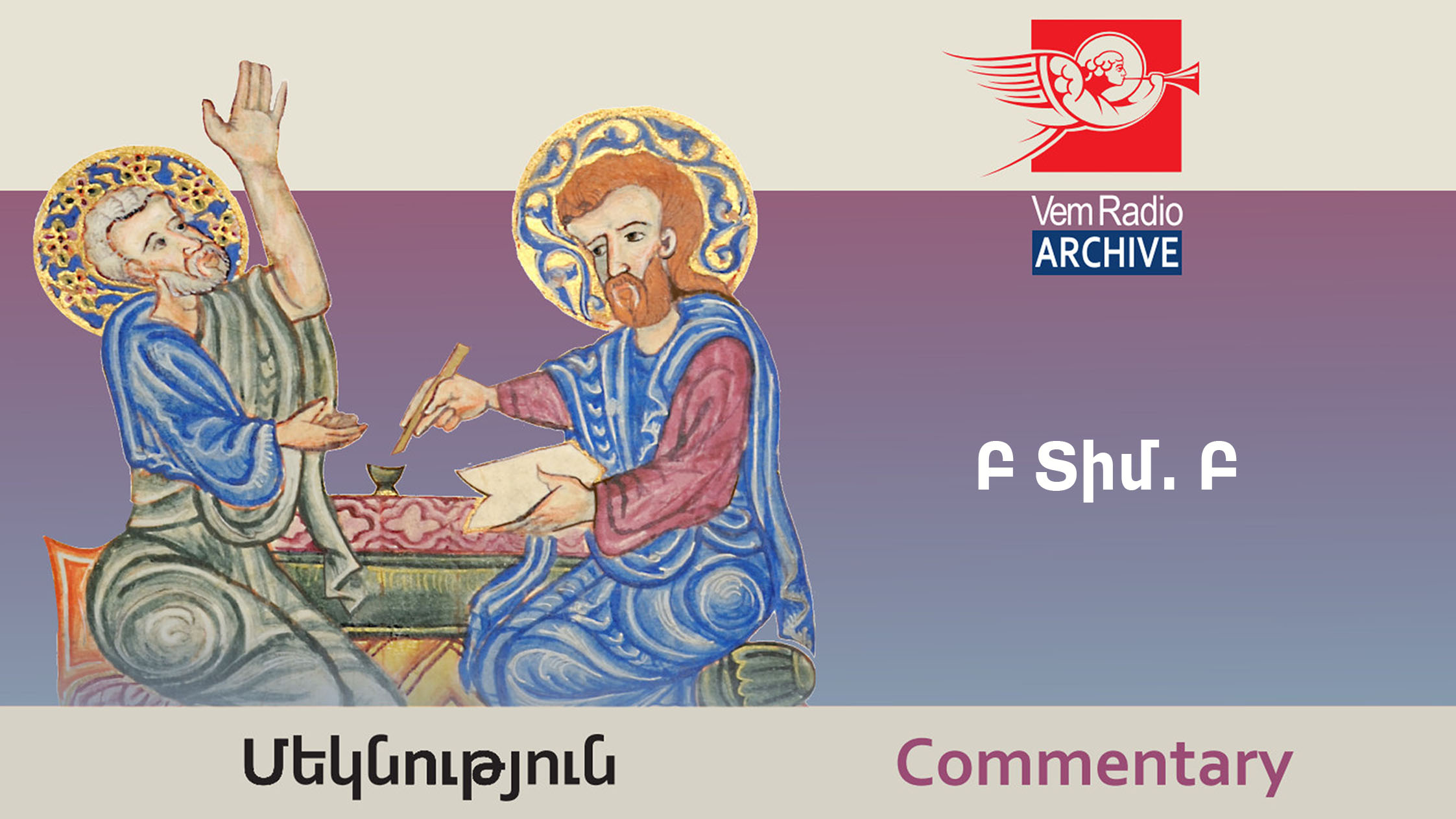
2 Tim. 2
All virtues are kindled in people by God's grace. Baptism symbolizes spiritual burial and resurrection. How to stay strong in faith. Consequences of apostasy.
- Speaker: Fr. Mesrop Aramian

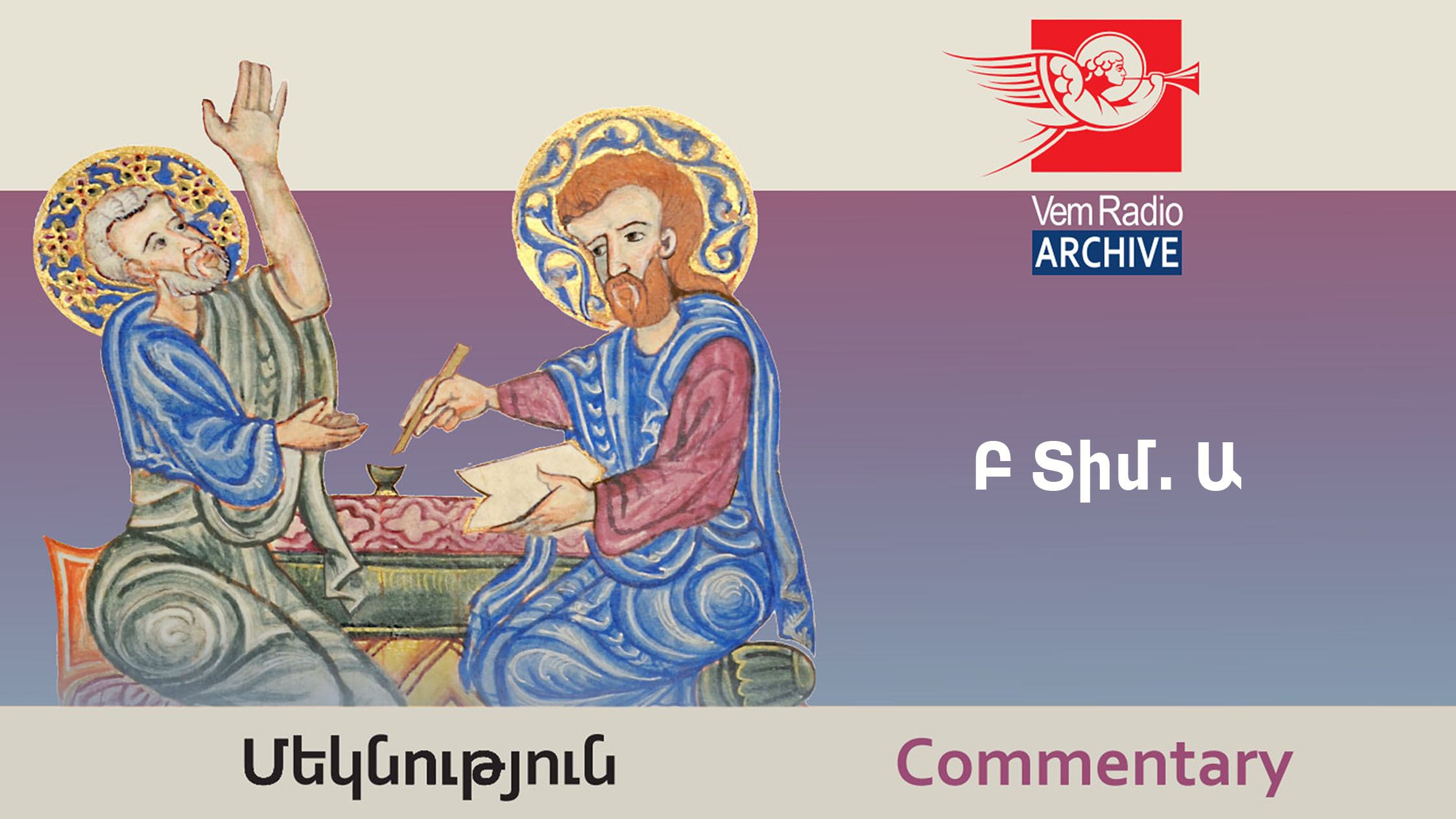
2 Tim. 1
God's grace and mercy. Only in spiritual peace can spiritual gifts bear fruit and grow. If people share in Christ's sufferings, they also share in His resurrection․
- Speaker: Fr. Mesrop Aramian

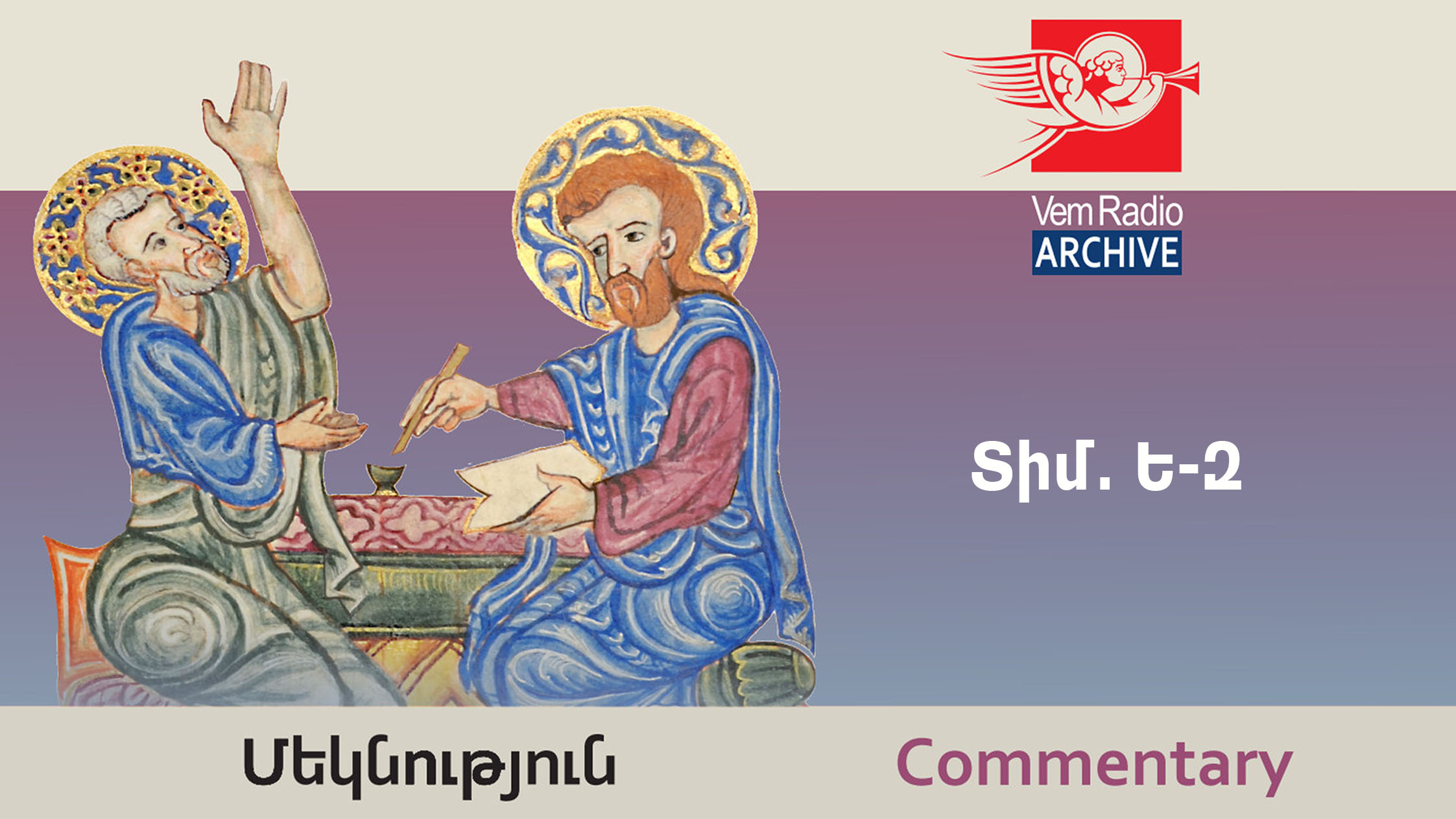
Tim. 5-6
Teachings from the apostle to strengthen human relationships. Ordination of a priest. Service is an important characteristic in a Christian's life. Worldliness and godliness are in a deep opposition.
- Speaker: Fr. Mesrop Aramian

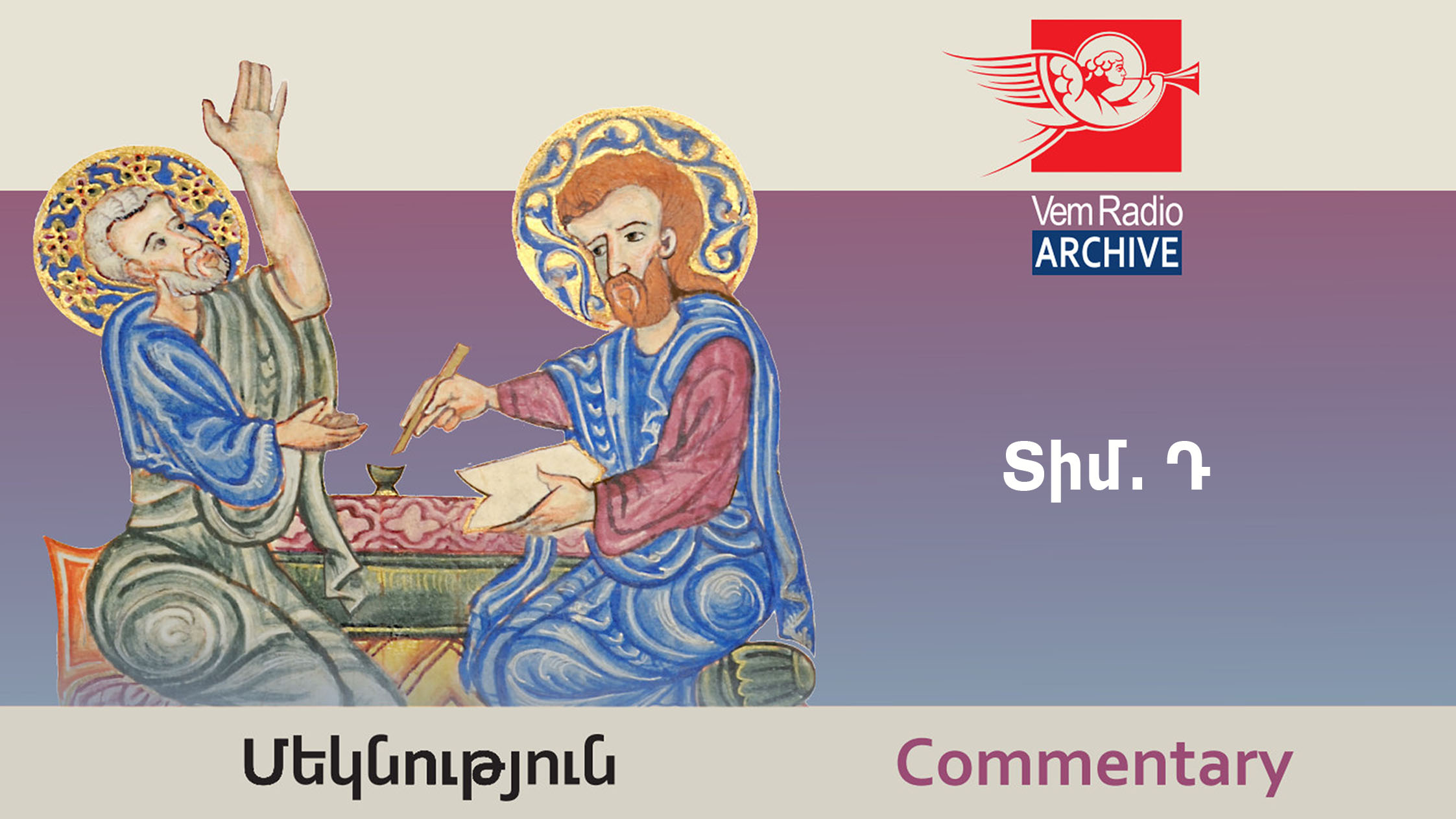
Tim. 4
Conscience is the herald of the kingdom of heaven in humans. Evil and conscience. How evil hinders a person on the path of faith. True Tradition and superstition.
- Speaker: Fr. Mesrop Aramian


Tim. 3
When seeking ecclesiastical positions, the specifics of the work should be considered. Love of money is the core of materialism. Heavenly Church of Christ.
- Speaker: Fr. Mesrop Aramian


Tim. 2
Prayer is the foundation of spiritual life. Gratitude and supplications during prayer. What are the behavioral characteristics of Christian women and men?
- Speaker: Fr. Mesrop Aramian


Tim. 1
Introduction to the epistle and its writing period. The peace of Christ. The inseparable bond of love and faith. The path of repentance begins with the inner awareness of sin.
- Speaker: Fr. Mesrop Aramian

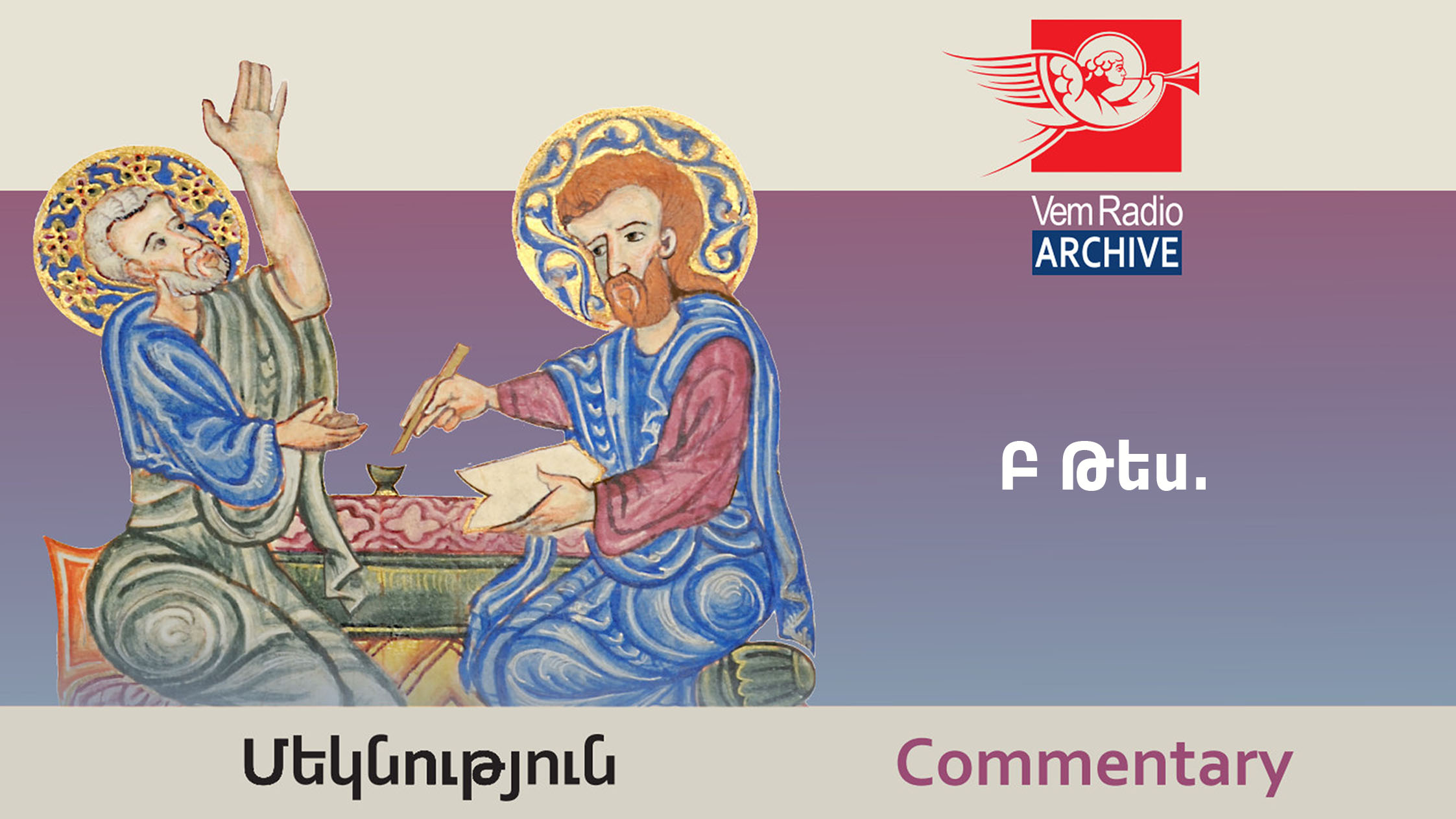
2 Thess.
With this epistle, the apostle prepares Christians for God's Judgment. Signs of the Coming of God. Expressing appreciation to God and its importance. Laziness and the danger of its spread.
- Speaker: Fr. Mesrop Aramian


1 Thess. 1-3
The apostle's exhortation to persevere in godliness. Patience comes from the true Christian hope․ Apostle Paul's expression of love and devotion to the Thessalonians.
- Speaker: Fr. Mesrop Aramian

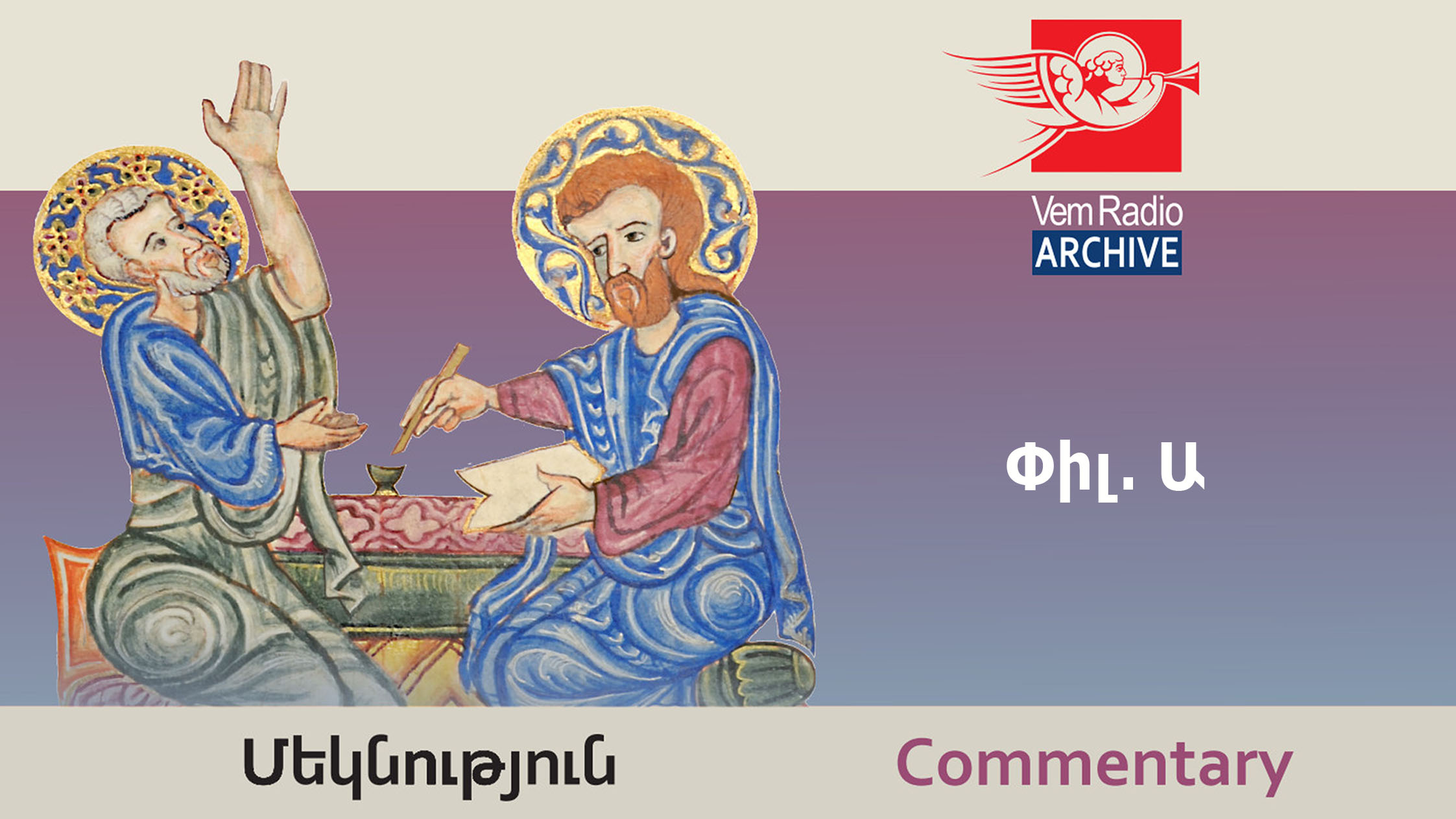
Phil. 1
The circumstances and time period of writing the epistle. Spiritual actions must be based on theological knowledge. Faith is strengthened through suffering.
- Speaker: Fr. Mesrop Aramian


Col. 4
The admonitions of the apostle to set the people on the right path. The true understanding and nature of obedience. How to maintain a strong family. Gratitude is a universal Christian principle.
- Speaker: Fr. Mesrop Aramian


Col. 3 (1-17)
The Kingdom of Heaven is the living presence of God. The apostle's spiritual counsels to overcome sins of the flesh. The most important Christian virtues are fulfilled through love.
- Speaker: Fr. Mesrop Aramian


Col. 2
It is through Jesus Christ that believers commune with the kingdom of heaven. The Apostle's exhortation to beware of sectarian superstitions. By the circumcision of faith, humans got the opportunity to be freed from sin.
- Speaker: Fr. Mesrop Aramian


Col. 1
Apostle Paul's motives for writing the epistle. The process and importance of deepening the spiritual life. Through Christ, a human receives a path leading from the darkness of sin to the light of God.
- Speaker: Fr. Mesrop Aramian


Eph. 6
The divine basis of the parent-child relationship. The phenomena of God-pleasing and human-pleasing. Through disguised deceits, evil constantly tries to lure humans into sin.
- Speaker: Fr. Mesrop Aramian